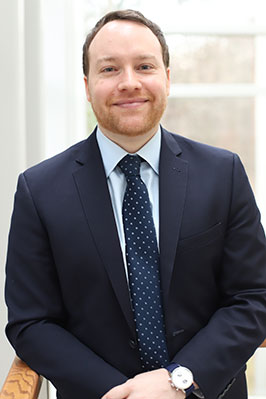Walking The Tightrope: Waiver of Airline Defenses Under Montreal Convention Can Prove Costly, Despite Recoveries in “Bump” Cases
Involuntary denial of boarding a flight, also known as getting “bumped,” has been a common practice by airlines for years. It occurs in situations where there are more passengers scheduled to fly on an airplane than available seats. When a flight is full and overbooked, airlines use their own criteria to chose which passenger(s) will be removed or “bumped” from the flight.
In a recent case of “bumping,” in Lockhart v. Coastal Air Transport, the Supreme Court of the Virgin Islands affirmed the award of damages to a passenger who was wrongfully denied boarding an international flight from Dominica to St. Croix, initially due to an erroneous ticketing issue that was determined to be the fault of the airline. Lockhart at 1. On appeal, the primary question the Court addressed was the issue of whether a passenger who was involuntarily denied boarding (“bumped”) is entitled to compensation when the plane has a capacity of only nine seats. Importantly, although this case was within the purview of the Montreal Convention (“Convention”), as it involved international carriage, the Court noted that the airline had waived its right to assert defenses under the Convention because the airline did not raise those defenses in its responsive pleadings.[1] Lockhart at fn. 2. Instead, the airline relied upon Section 250 of the Code of Federal Regulations as authority to support its position that the passenger was not entitled to recovery for compensatory damages, such as the cost of the ticket and subsequent expenses including overnight accommodations.
Specifically, the airline argued that the passenger’s recovery was precluded under 14 C.F.R. §250.6, which permits an airline to deny a passenger from boarding an oversold flight in the event the aircraft has 60 or less seats and is unable to accommodate additional passengers due to weight/balance restrictions related to operation and safety. Lockhart at 2. In affirming the trial court’s award for the passenger, the Court endorsed the position that private legal action is permissible if airlines refuse recompense or passengers do not agree to an airline’s proposed compensation in “bumping” situations. Id. at 3. The Court determined that §250.6 was inapplicable because the airline presented no evidence that the passenger was denied boarding due to weight or balance restrictions. The Court also found that §250 did not apply in the first place because it is limited to a category of aircrafts that have a designed passenger capacity of 30 or more passenger seats, and the aircraft at issue was limited to only nine seats. Lockhart at 2. As a result, this case was governed by local law rather than the Code of Federal Regulations. Id. at 3.
As seen in Lockhart, multiple controlling authorities have the potential to govern these types of claims, including the Code of Federal Regulations, the Montreal Convention, local law, and potentially other sources. While individual facts and circumstances in each case will ultimately determine whether liability exists and the extent of available damages, the Montreal Convention can serve to provide levels of limitation on recovery and may provide grounds for complete dismissal in certain situations. Although the passenger’s recovery in Lockhart was ultimately upheld, the airline was fortunate that the scope of this particular claim was limited to nominal compensatory damages. In many situations, waiving defenses provided under the Montreal Convention is a risky proposition as the Convention provides a number of limitations on recovery and safeguards for air carriers, including caps on delay damages per Article 19, preclusion of recovery for delays under Article 17, in addition to the prohibition of emotional and punitive damages. Carriers flying internationally rely on these limitations on recovery, and risk losing these protections when waiving the defense of the Montreal Convention.
[1] It is unknown whether waiving defenses under the Montreal Convention was done intentionally or not.

Michael W. Aceto concentrates his practice in the areas of product liability, toxic tort, environmental, and general liability claims. He is a trial lawyer with experience defending companies and individuals in matters involving mass torts including asbestos, benzene, talc, mold, lead, and other chemicals, and dedicates a significant portion of his practice to complex product liability actions involving industrial equipment, commercial and consumer motor vehicles, construction machinery, and household consumer products.
Before entering private practice, Michael served as a law clerk in the Torts Litigation Section of the Pennsylvania Office of Attorney General and as a judicial law clerk to the Hon. Edward Griffith in the Chester County, PA Court of Common Pleas. In addition, he focuses his pro bono practice on counseling non-profit organizations in the educational system. Read more

Gray has extensive New York civil litigation experience defending high exposure cases involving alleged premises, construction, elevator, New York State Labor Law, environmental and toxic torts, asbestos, landscaping, auto, and municipality claims. Prior to joining Perez Morris Hyde, Gray spent over 5 years with his prior firm as lead counsel for cases at the Trial and Appellate levels, including a published and favorable decision by the First Department, Appellate Division of New York. Dillon K. v. N. Blvd. 4818, LLC, 161 A.D.3d 664, 77 N.Y.S.3d 69 (N.Y. App. Div. 2018).
Gray is excited to be a part of the growing and collaborative, NAMWOLF certified team at Perez Morris. Read more


